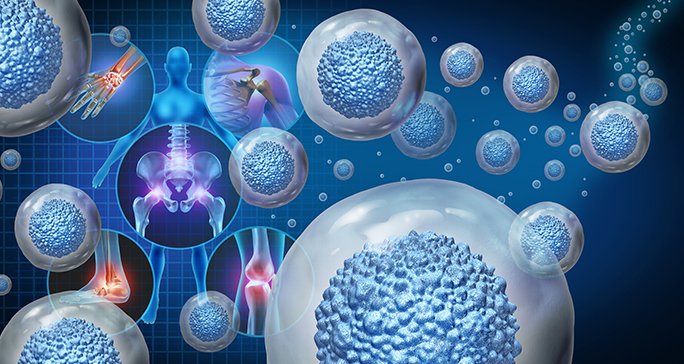- Diseases
- Acoustic Neuroma (14)
- Adrenal Gland Tumor (24)
- Anal Cancer (66)
- Anemia (2)
- Appendix Cancer (16)
- Bile Duct Cancer (28)
- Bladder Cancer (68)
- Brain Metastases (28)
- Brain Tumor (230)
- Breast Cancer (716)
- Breast Implant-Associated Anaplastic Large Cell Lymphoma (2)
- Cancer of Unknown Primary (4)
- Carcinoid Tumor (8)
- Cervical Cancer (154)
- Colon Cancer (164)
- Colorectal Cancer (110)
- Endocrine Tumor (4)
- Esophageal Cancer (42)
- Eye Cancer (36)
- Fallopian Tube Cancer (6)
- Germ Cell Tumor (4)
- Gestational Trophoblastic Disease (2)
- Head and Neck Cancer (6)
- Kidney Cancer (124)
- Leukemia (344)
- Liver Cancer (50)
- Lung Cancer (288)
- Lymphoma (284)
- Mesothelioma (14)
- Metastasis (30)
- Multiple Myeloma (98)
- Myelodysplastic Syndrome (60)
- Myeloproliferative Neoplasm (4)
- Neuroendocrine Tumors (16)
- Oral Cancer (100)
- Ovarian Cancer (170)
- Pancreatic Cancer (166)
- Parathyroid Disease (2)
- Penile Cancer (14)
- Pituitary Tumor (6)
- Prostate Cancer (144)
- Rectal Cancer (58)
- Renal Medullary Carcinoma (6)
- Salivary Gland Cancer (14)
- Sarcoma (236)
- Skin Cancer (296)
- Skull Base Tumors (56)
- Spinal Tumor (12)
- Stomach Cancer (60)
- Testicular Cancer (28)
- Throat Cancer (90)
- Thymoma (6)
- Thyroid Cancer (98)
- Tonsil Cancer (30)
- Uterine Cancer (78)
- Vaginal Cancer (14)
- Vulvar Cancer (18)
- Cancer Topic
- Adolescent and Young Adult Cancer Issues (20)
- Advance Care Planning (10)
- Biostatistics (2)
- Blood Donation (18)
- Bone Health (8)
- COVID-19 (362)
- Cancer Recurrence (120)
- Childhood Cancer Issues (120)
- Clinical Trials (624)
- Complementary Integrative Medicine (24)
- Cytogenetics (2)
- DNA Methylation (4)
- Diagnosis (230)
- Epigenetics (6)
- Fertility (64)
- Follow-up Guidelines (2)
- Health Disparities (14)
- Hereditary Cancer Syndromes (122)
- Immunology (18)
- Li-Fraumeni Syndrome (8)
- Mental Health (118)
- Molecular Diagnostics (8)
- Pain Management (62)
- Palliative Care (8)
- Pathology (10)
- Physical Therapy (18)
- Pregnancy (18)
- Prevention (894)
- Research (390)
- Second Opinion (74)
- Sexuality (16)
- Side Effects (604)
- Sleep Disorders (10)
- Stem Cell Transplantation Cellular Therapy (216)
- Support (404)
- Survivorship (322)
- Symptoms (184)
- Treatment (1772)
Teen papillary thyroid cancer survivor: ‘There is no good type of cancer’
3 minute read | Published December 14, 2016
Medically Reviewed | Last reviewed by an MD Anderson Cancer Center medical professional on December 14, 2016
Bethany Fischer was nearing the end of the eighth grade when she developed a thumb-sized bruise in the hollow of her neck that wouldn’t go away. She also began having trouble swallowing.
“It felt like I had a frog in my throat, or maybe a sock,” says the now 16-year-old sophomore.
Bethany told her mother what was going on right away. “My heart just kind of stopped,” says her mother, Elizabeth Fischer. “My sister used those exact same words to describe how it felt when she had thyroid cancer, but I never shared that with Bethany.” Elizabeth’s brother also died of a throat tumor (rhabdomyosarcoma) when he was five.
Elizabeth took Bethany to see her pediatrician immediately. The League City doctor ordered an ultrasound, a test using contrast dye, and finally, a fine-needle biopsy. Then she sent Bethany to a pediatric endocrinologist, who diagnosed the teen with Hashimoto’s thyroiditis and gave her an oral supplement. The endocrinologist also referred Bethany to MD Anderson for a second opinion.
A papillary thyroid cancer diagnosis
Bethany and her mother came to MD Anderson in early May 2015. Here, they met with endocrinologist Steven Waguespack, M.D., who discovered that Bethany actually had stage I papillary thyroid cancer. The tumor in her neck was almost two centimeters (or about an inch) long, and the cancer had spread into four out of five nearby lymph nodes.
“I was kind of shocked,” Bethany says. “That’s not a normal thing you hear when you’re 14. Most kids are worried about school and stuff, but I was wondering how it was going to affect my life. That’s the most terrifying part: not knowing how everything was going to turn out.”
Bethany’s papillary thyroid cancer treatment
Bethany and her mother met next with Stephen Lai, M.D., Ph.D., who performed surgery on June 19, 2015, to remove the tumor and the affected lymph nodes. He ended up removing Bethany’s entire thyroid gland, too, due to the tumor’s size and location. As a result, Bethany will have to take a synthetic thyroid hormone (levothyroxine) for the rest of her life. It suppresses any remaining cells of thyroid tissue so she won’t have to be treated with a radioactive isotope.
“At first, I was kind of annoyed about having to take medication the rest of my life,” Bethany says. “I wanted to be in the military, so that changed my path a little. But I’m still active in JROTC and do all the same stuff I did before.”
Gratitude for Bethany’s thyroid cancer care team
Bethany credits her MD Anderson doctors and nurses for making her cancer experience easier.
“They let me know everything that was going to happen and made it as painless as possible,” she says.
“The bedside manner of everyone we’ve encountered has been nothing less than exceptional,” Elizabeth adds.
The hardest part of thyroid cancer: other people’s reactions
So far, the hardest part of Bethany’s thyroid cancer journey for both mother and daughter has been other people’s reactions to the news.
“Some people hear ‘thyroid cancer’ and go, ‘Oh, that’s a great cancer to have. It’s so easy to treat,’” Elizabeth says. “That’s really frustrating. When people blow it off like that, it diminishes Bethany’s experience. And it’s totally different when you’re 14. You’re going through puberty and suddenly you have very visible scars. Every time you go on a sleepover, you’re having to take your pills.”
“It’s kind of like a big bag of garbage I’m carrying around,” Bethany adds. “I want to leave it behind, but it’s still dragging me down. Sometimes, I get self-conscious. But I have really awesome, supportive friends.”
Moving forward from a place of strength
Despite some lingering issues with swallowing, Bethany and Elizabeth are determined to move forward.
“Some people identify strongly with their disease, but Bethany doesn’t want to lead with being a patient or a ‘cancer kid,’” Elizabeth says. “We’re trying to turn the terminology now to being a survivor. The worst is behind us. We try to help each other remember that.”
Request an appointment at MD Anderson online or by calling 1-844-953-3045.
Related Cancerwise Stories

The bedside manner of everyone we've encountered has been nothing less than exceptional.
Elizabeth Fischer
Caregiver





